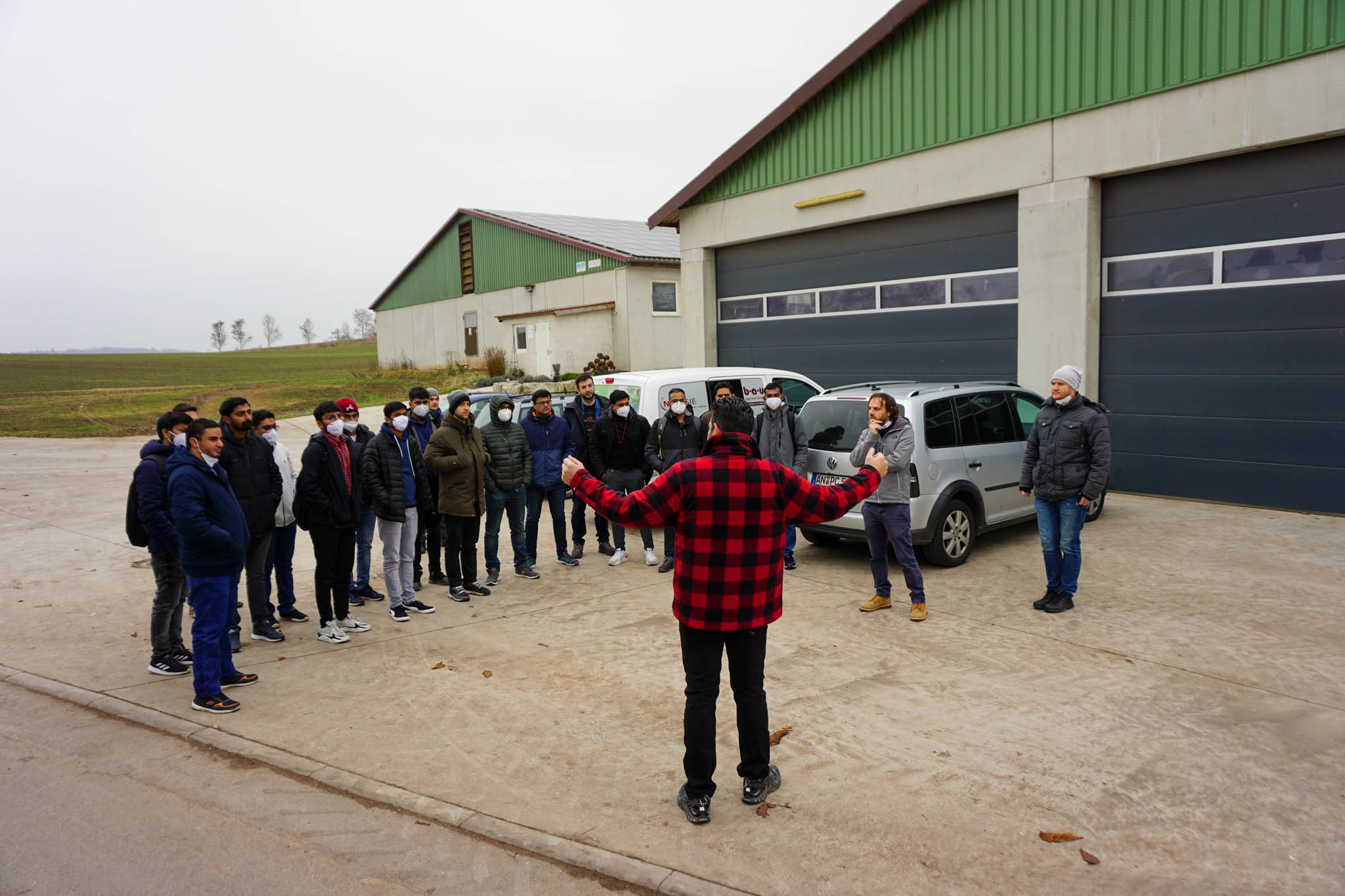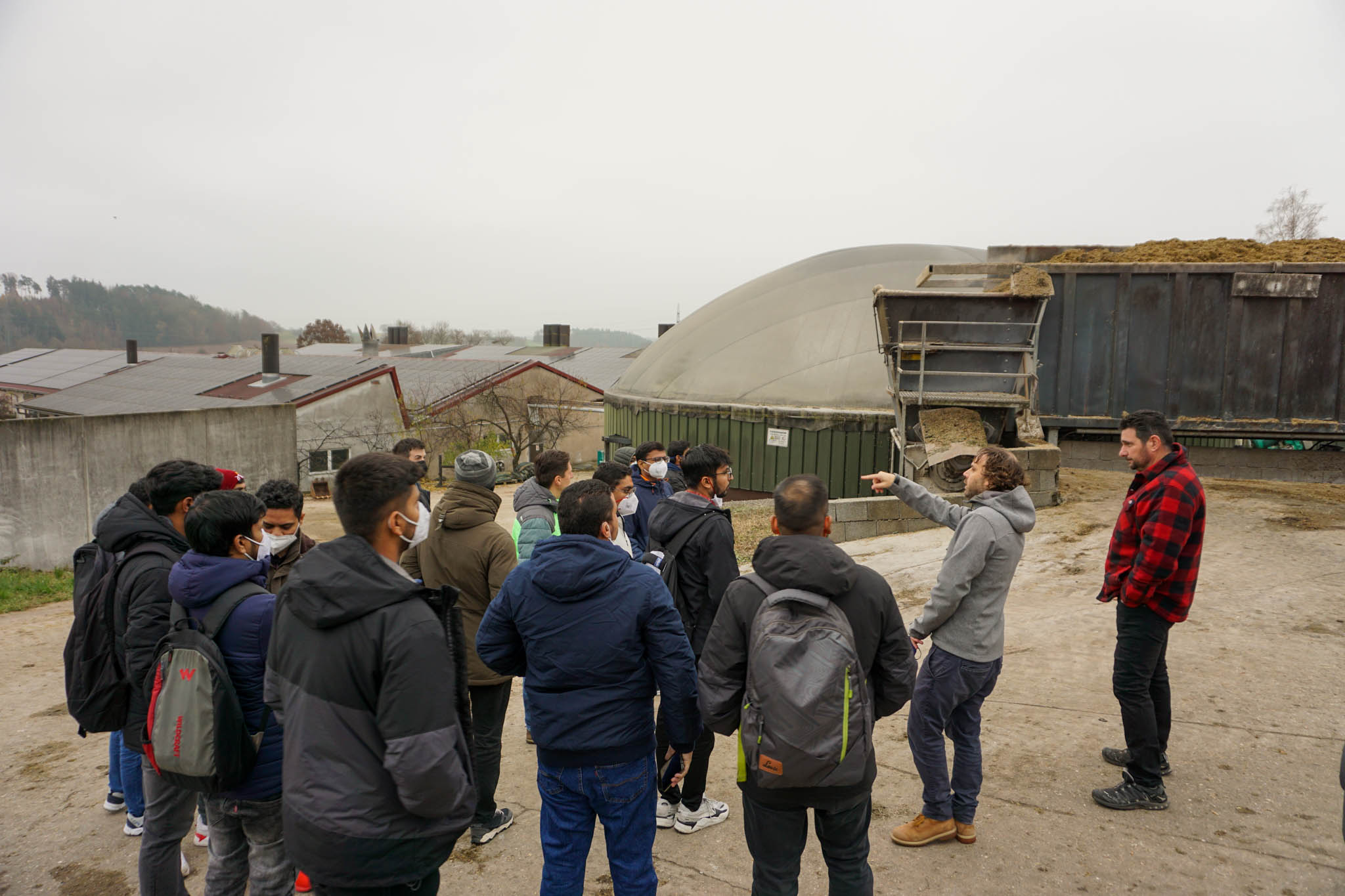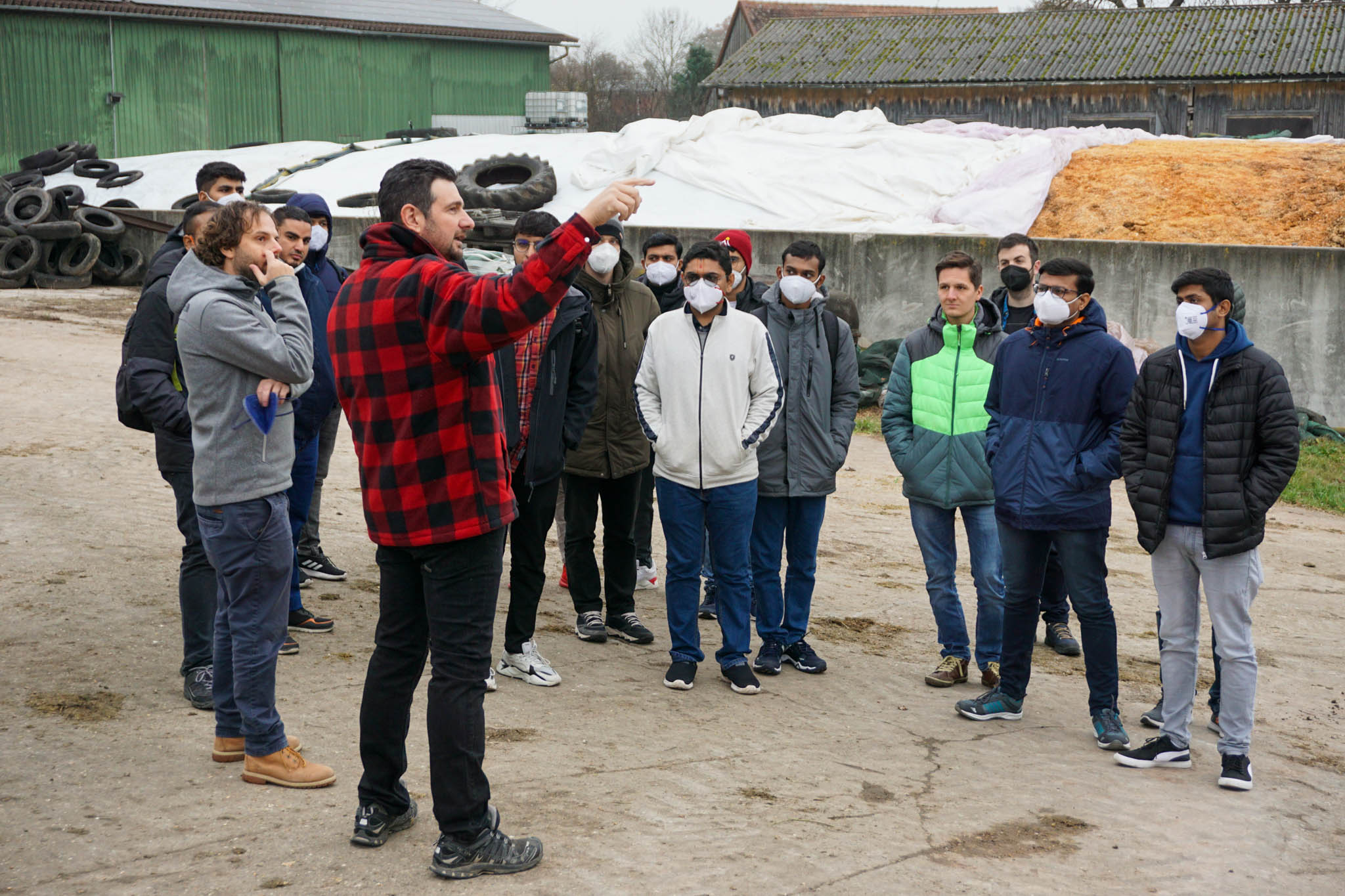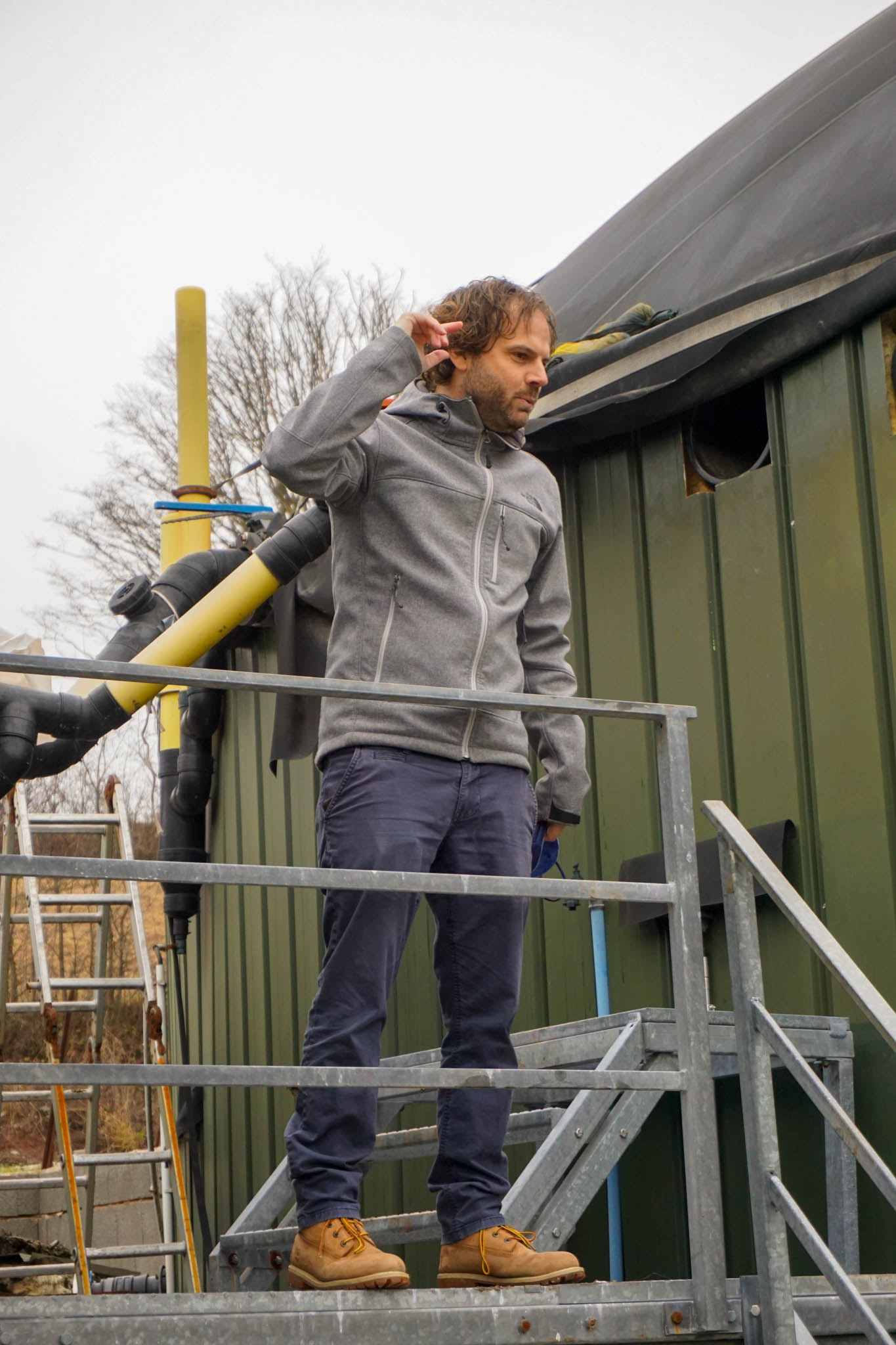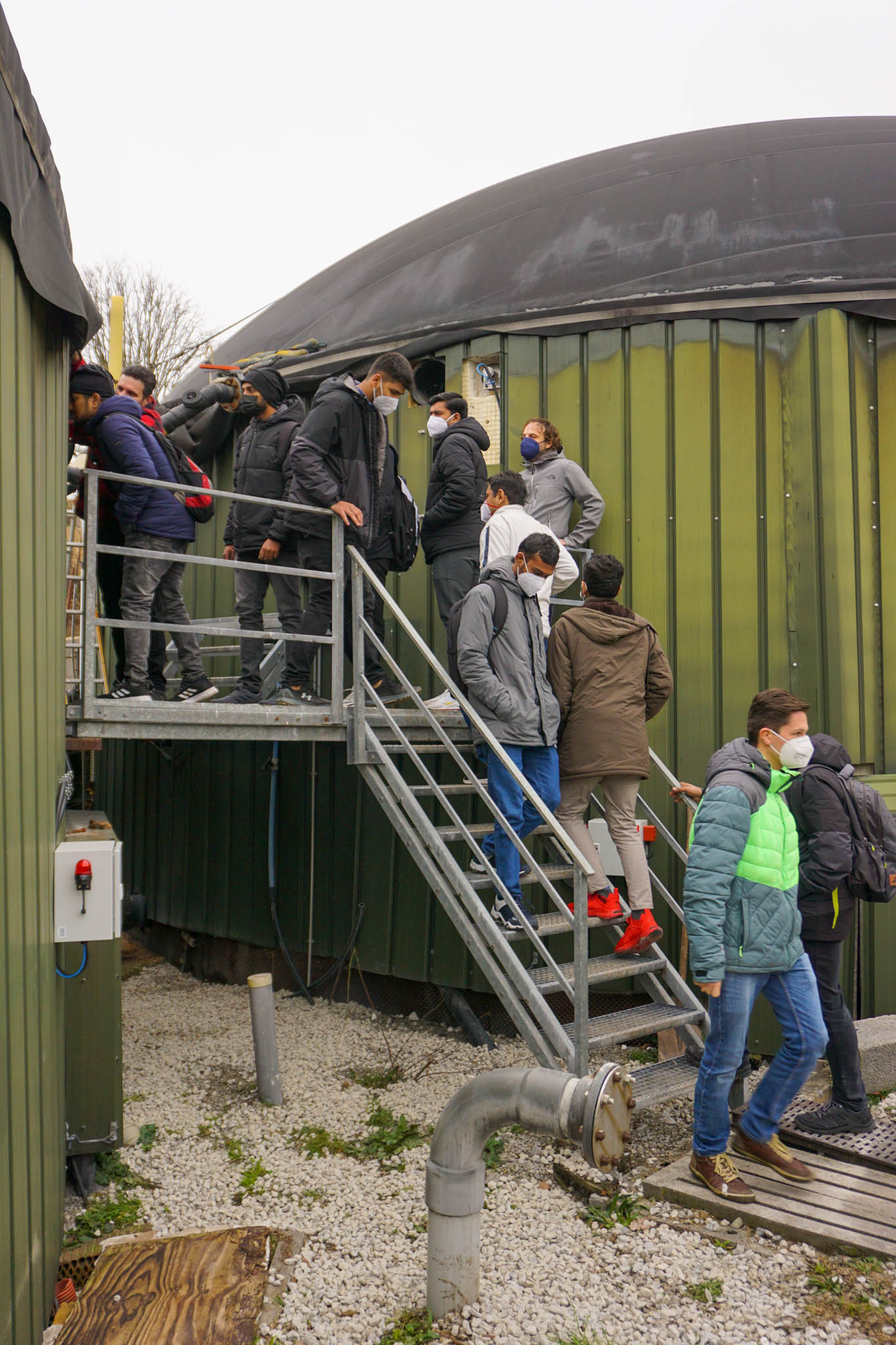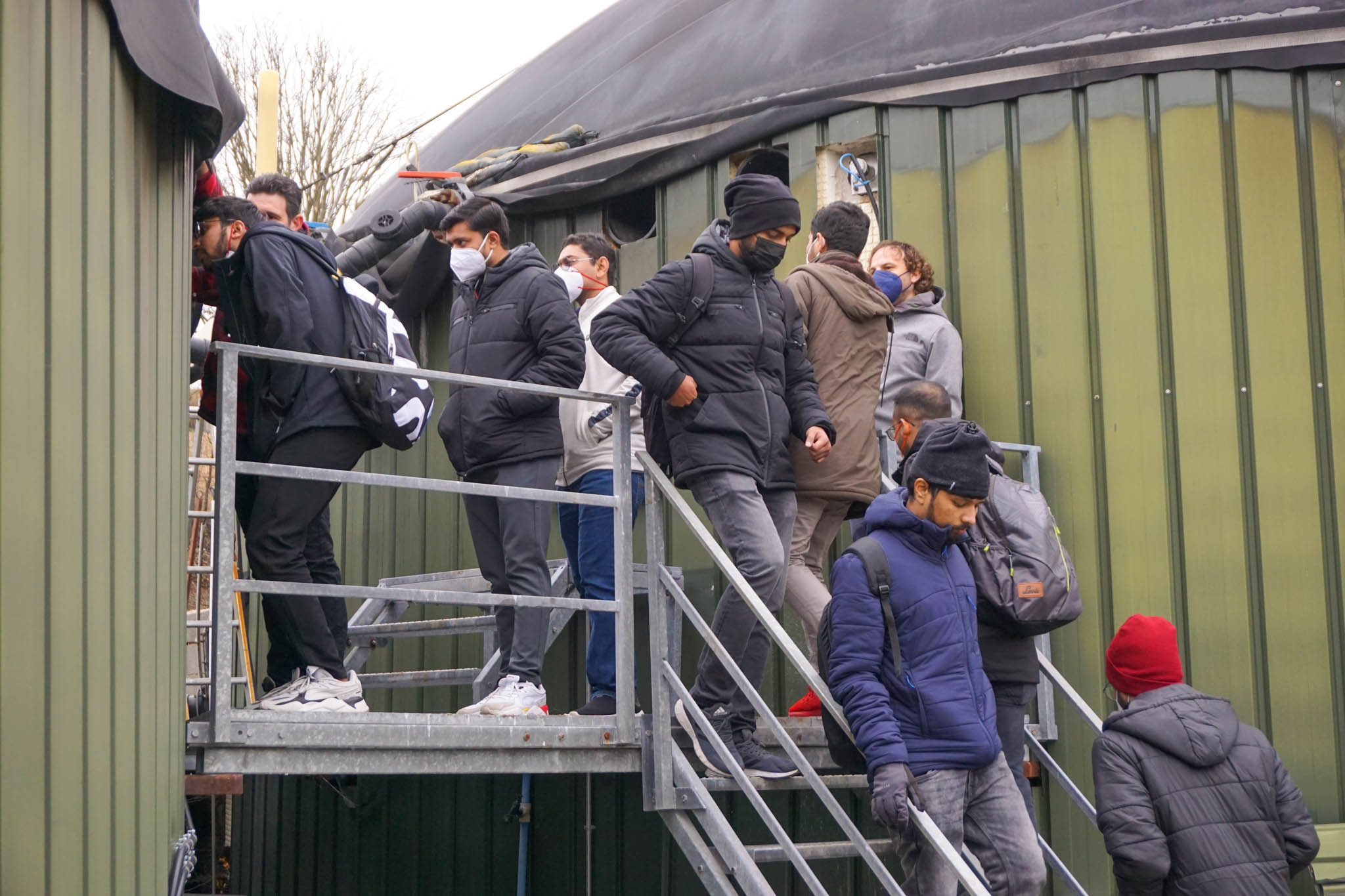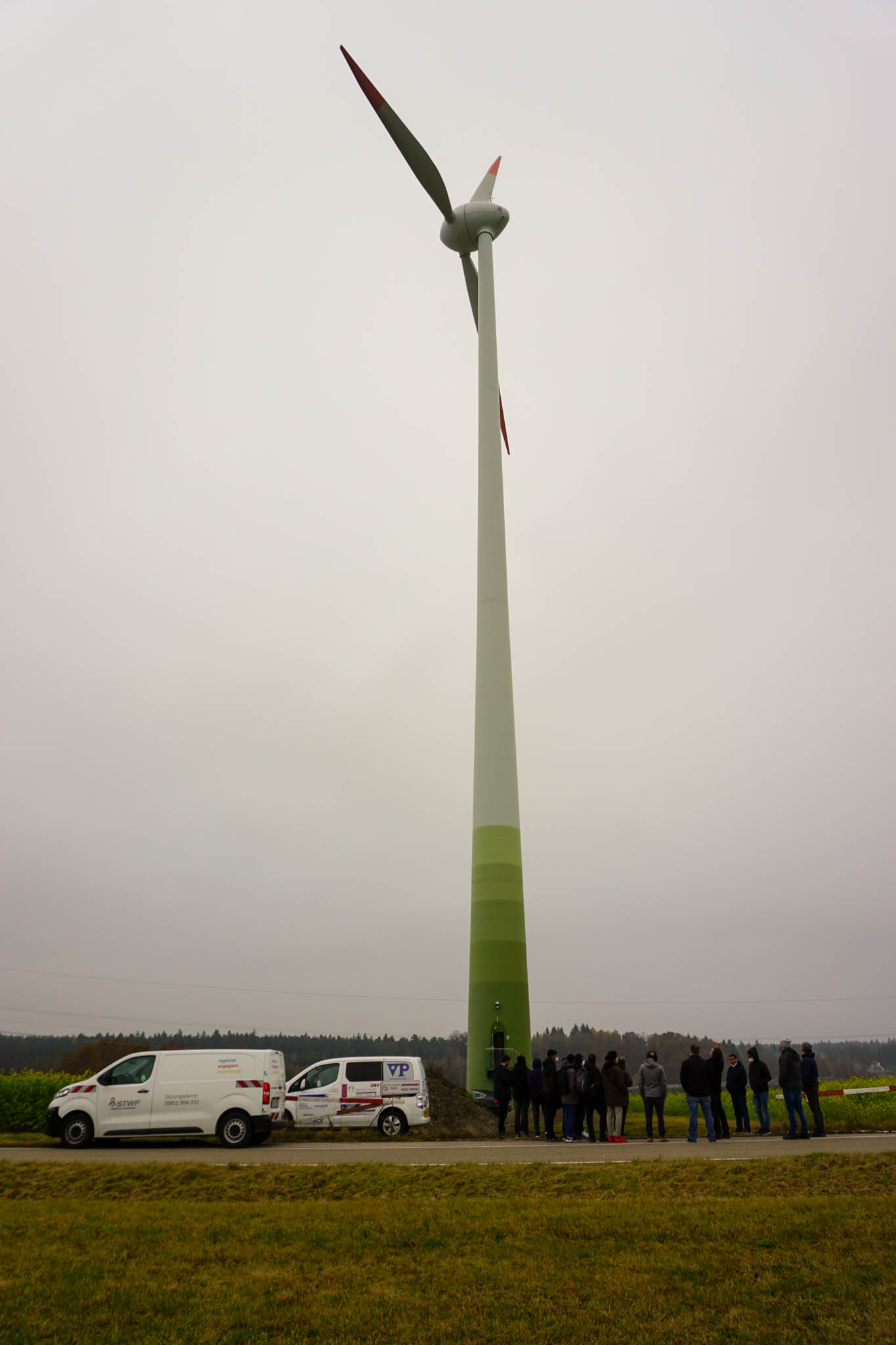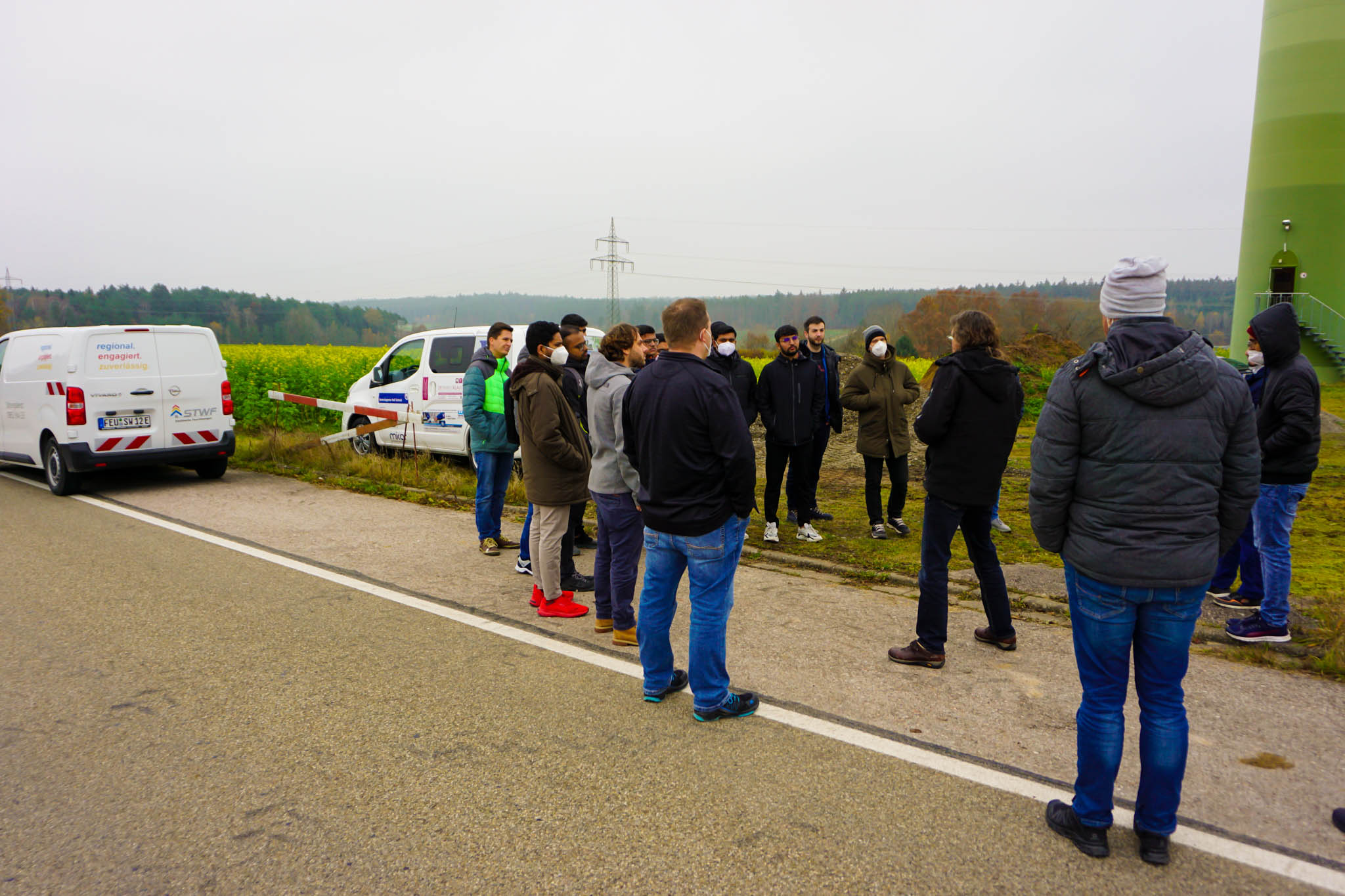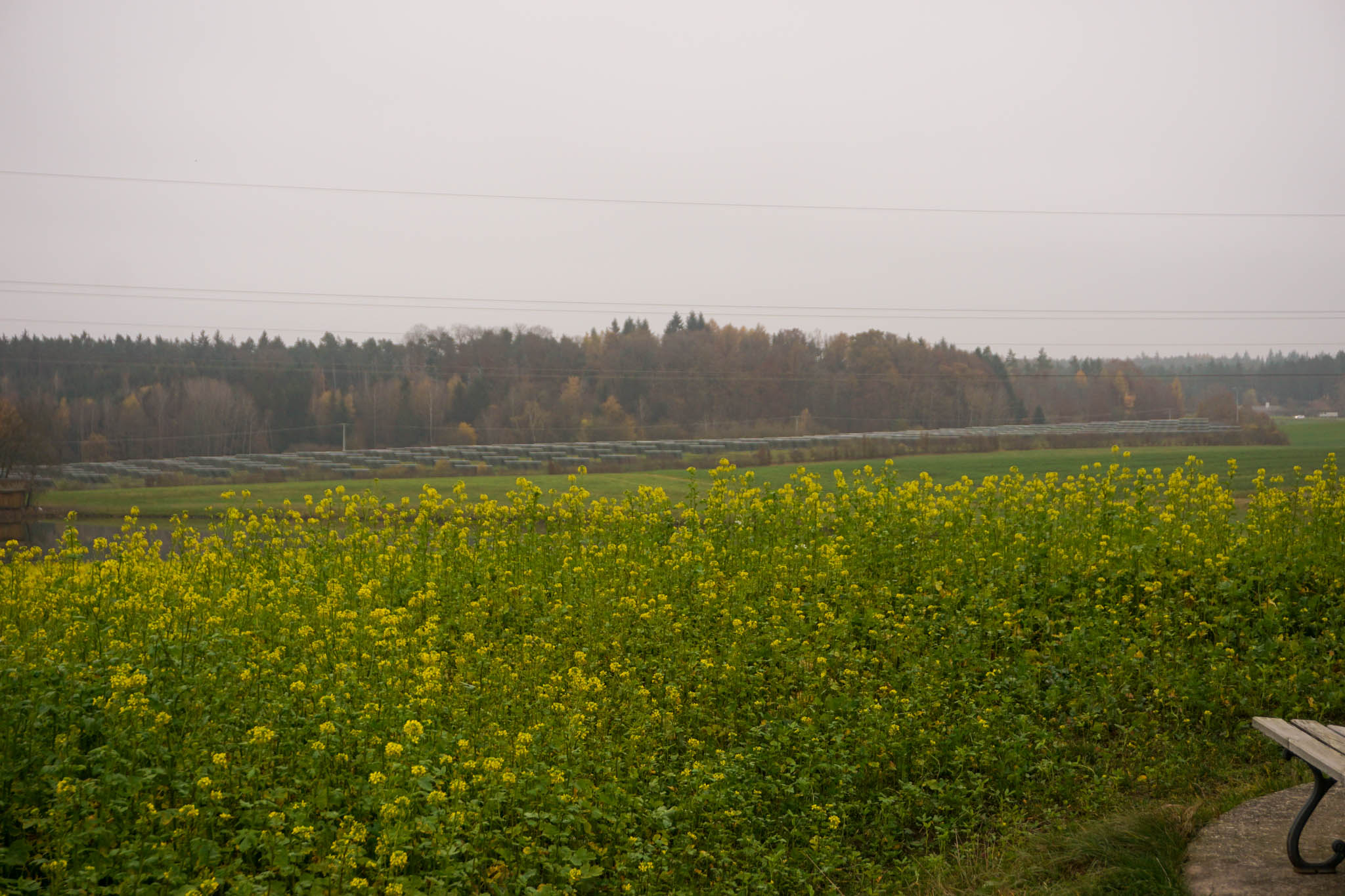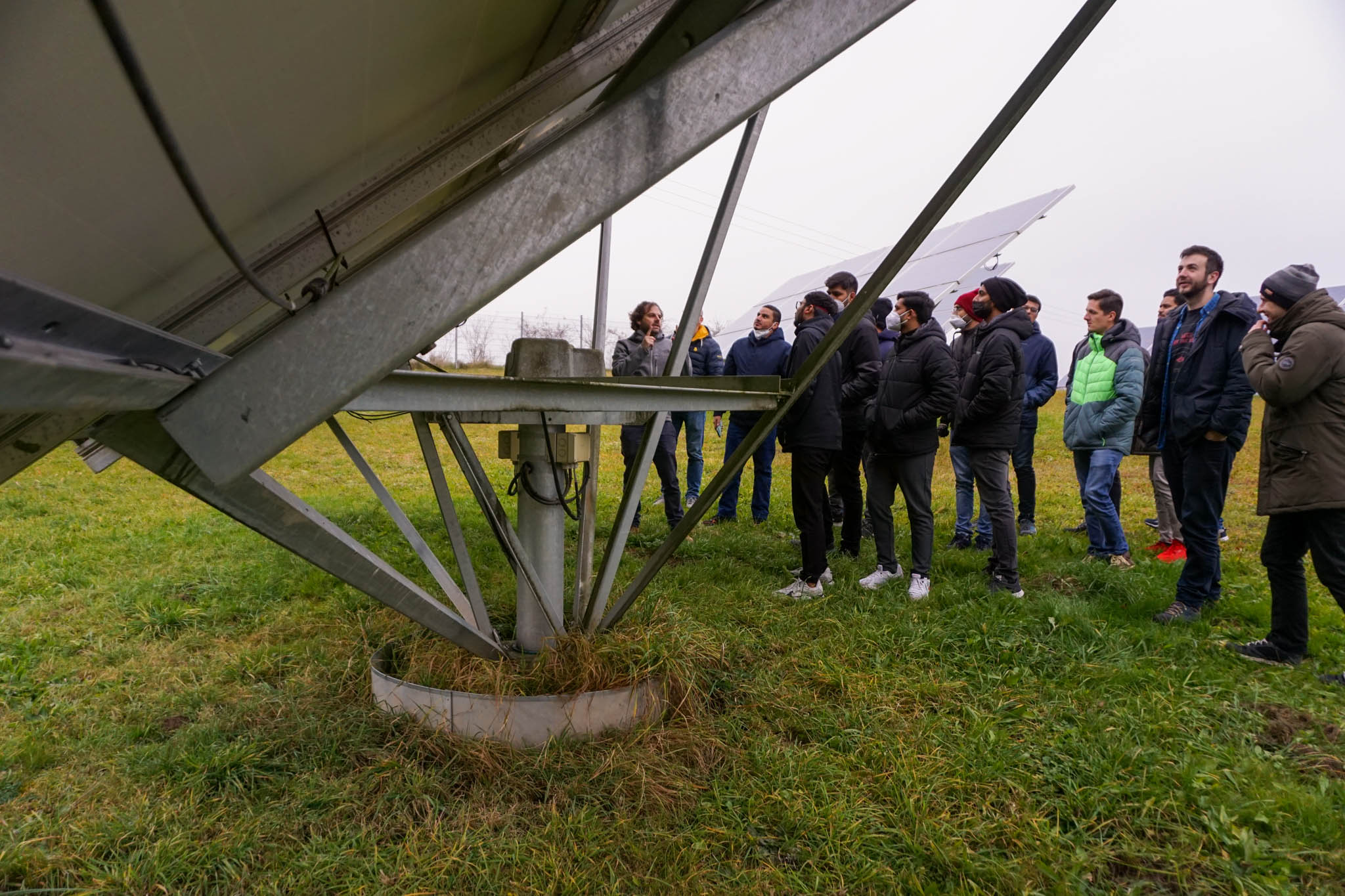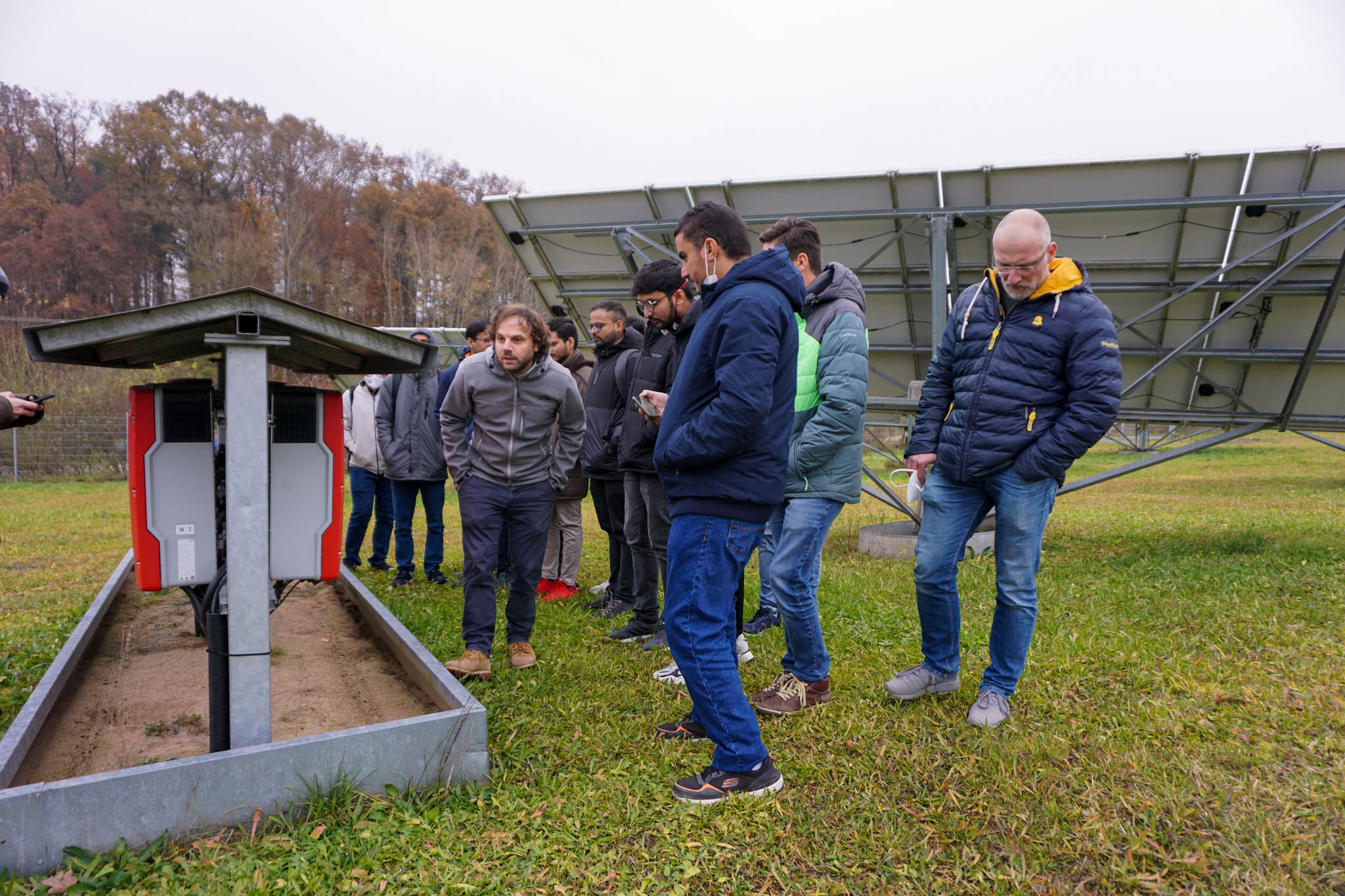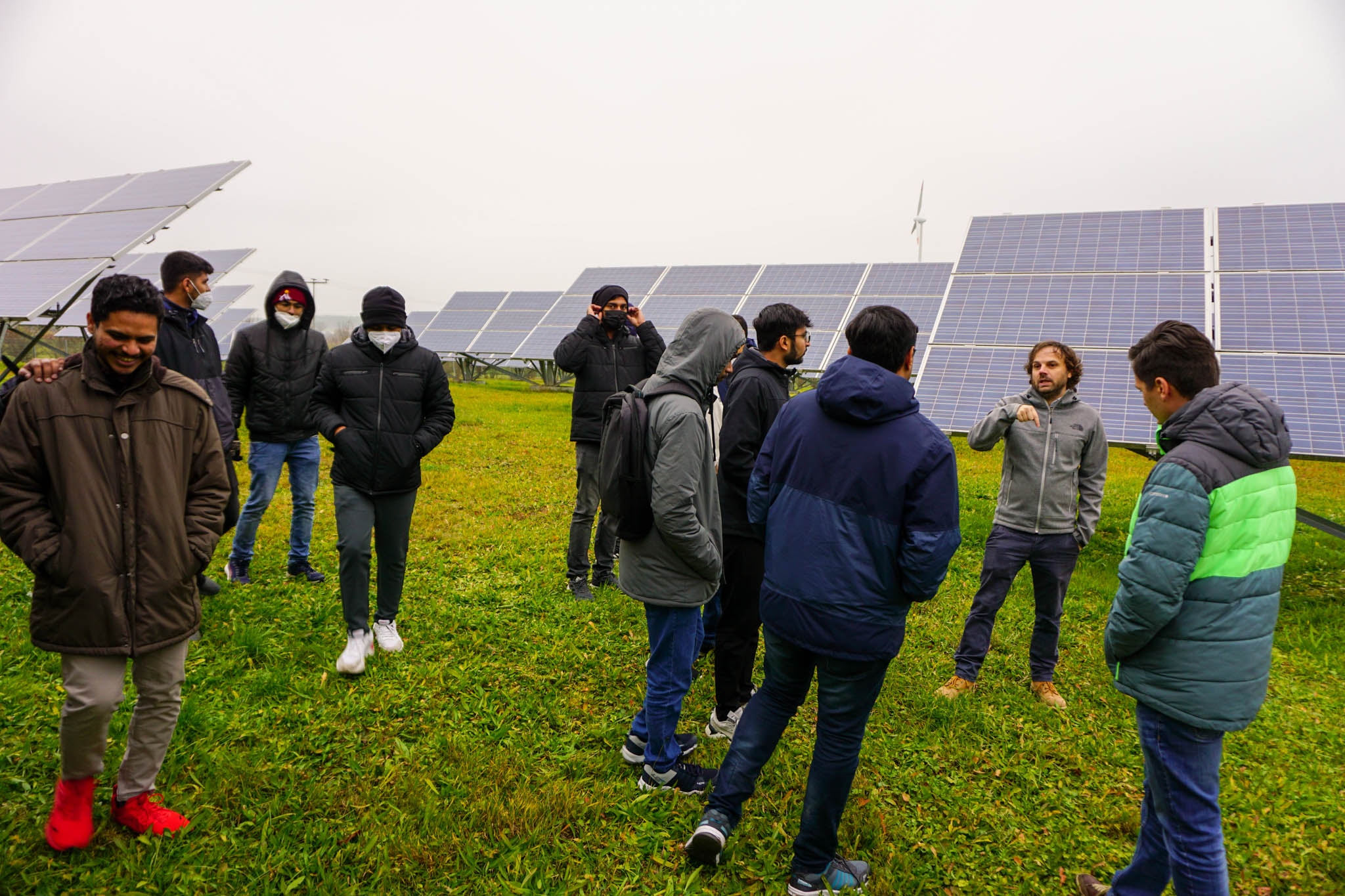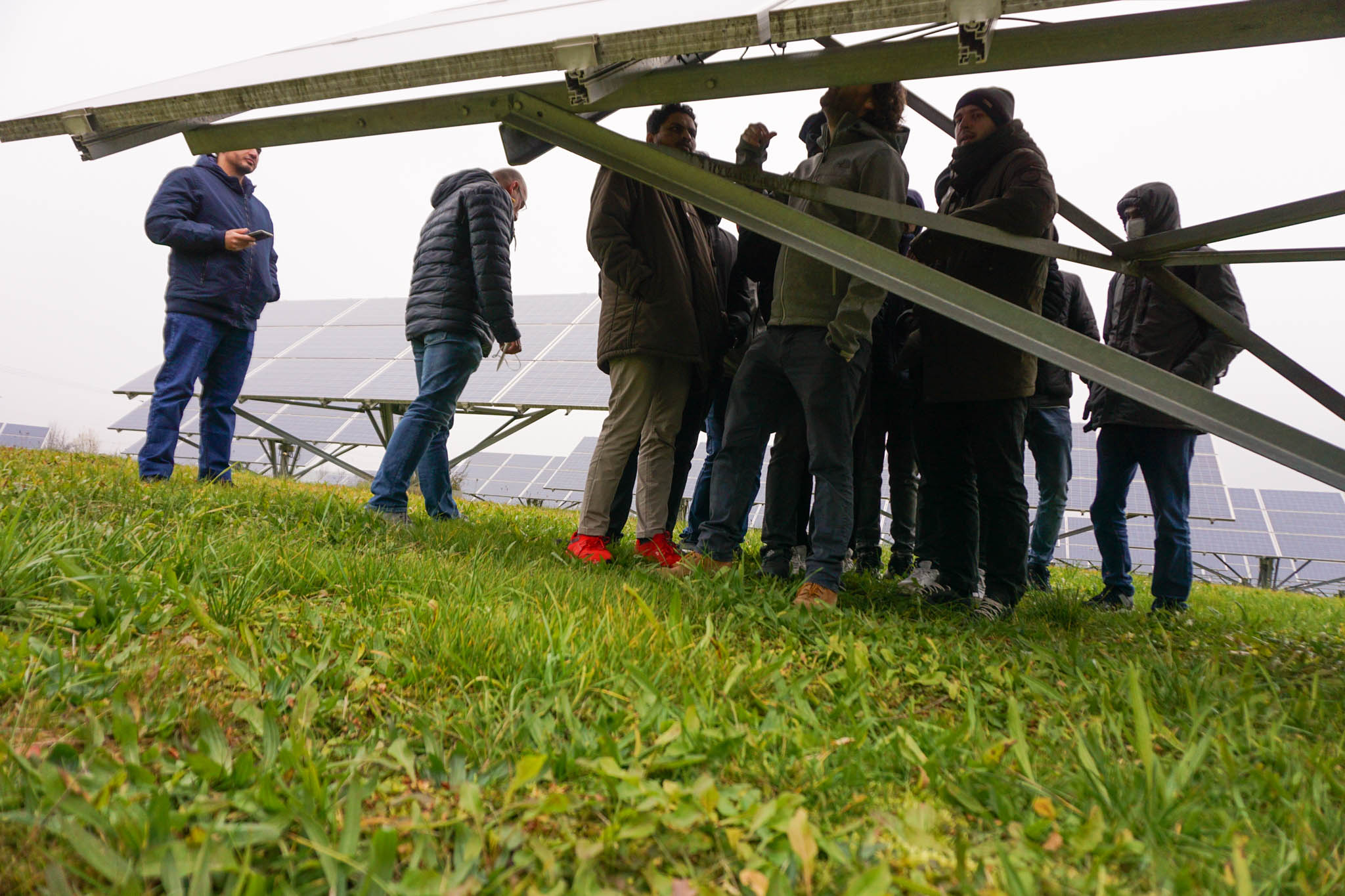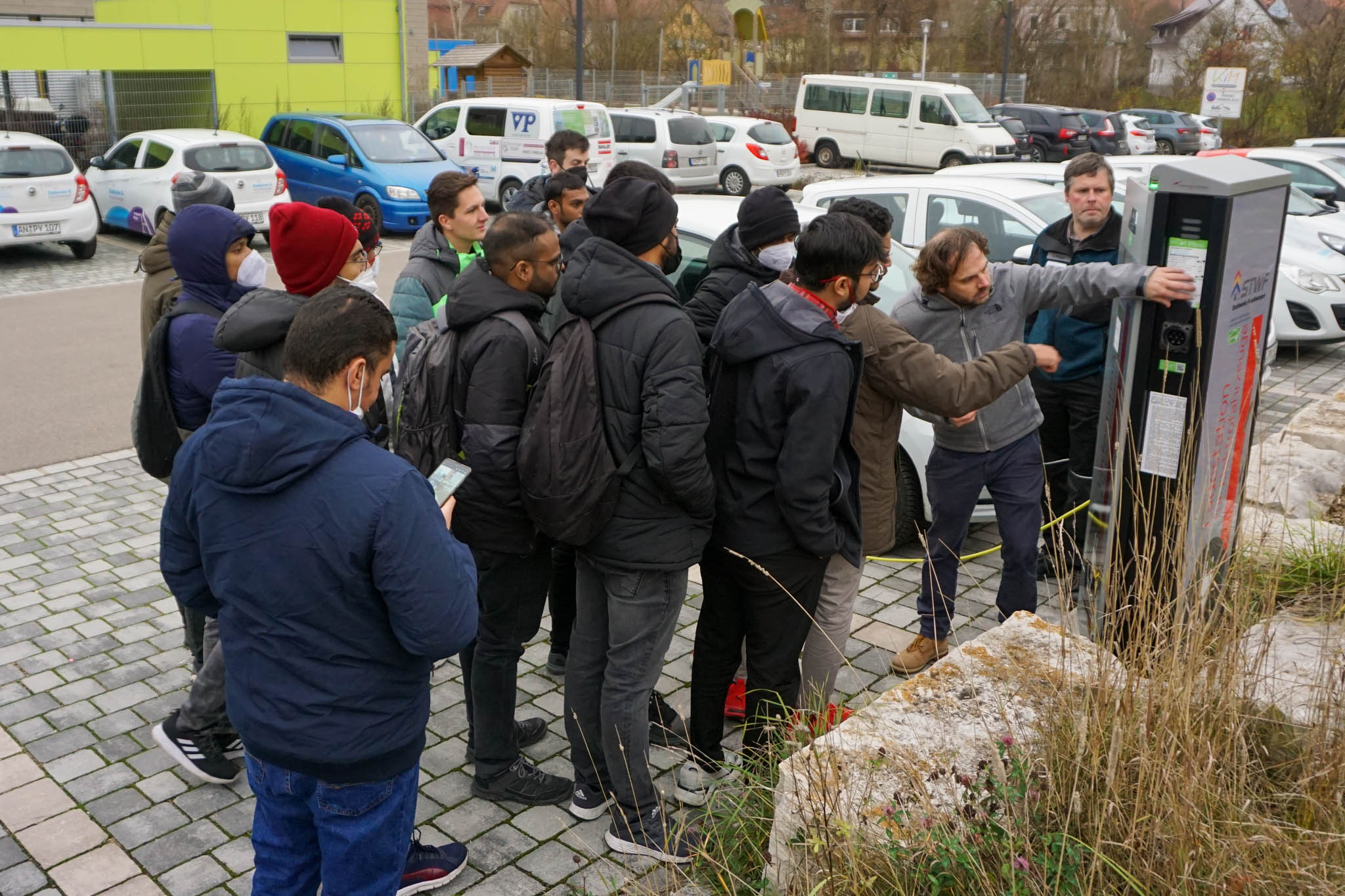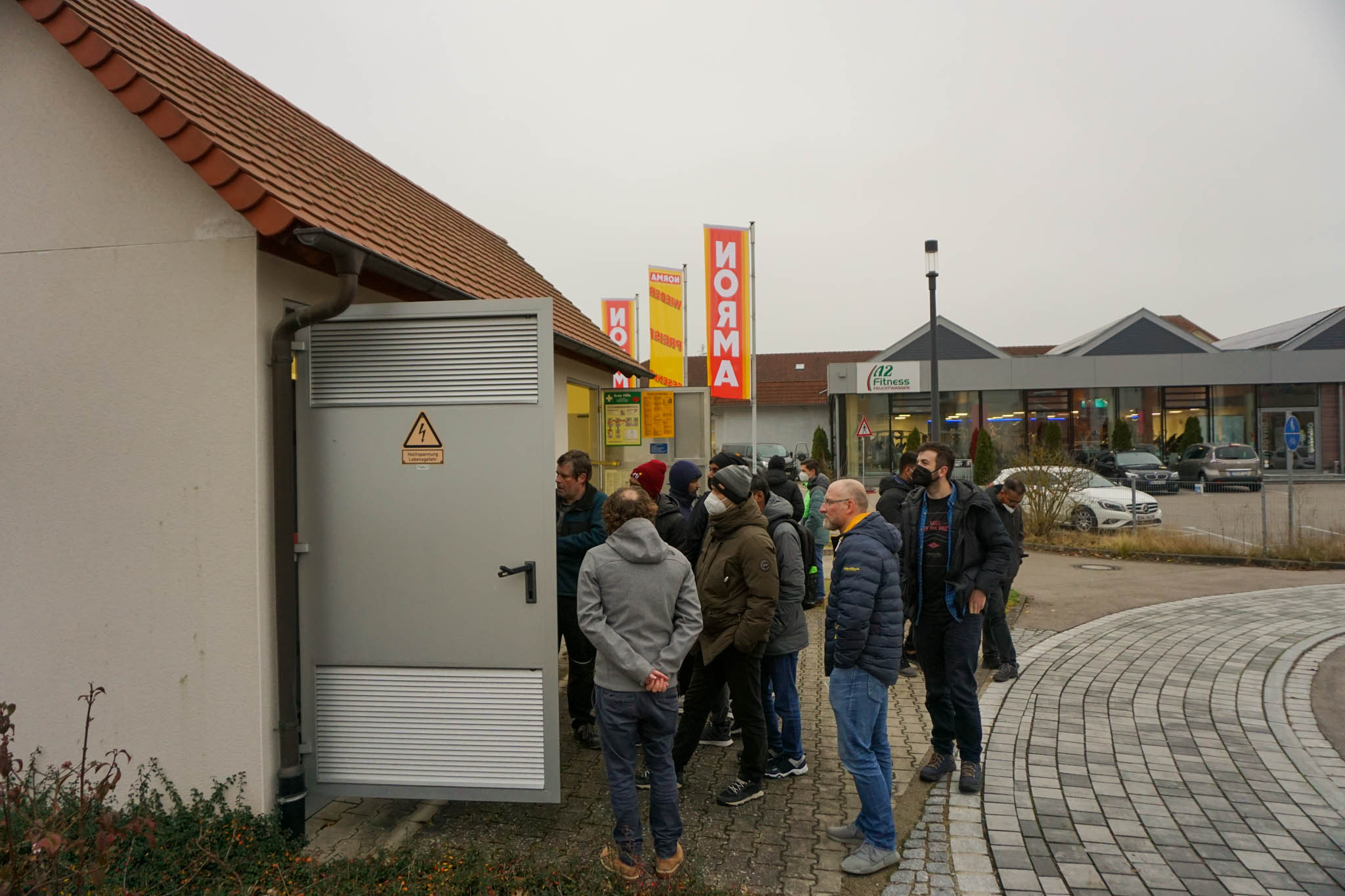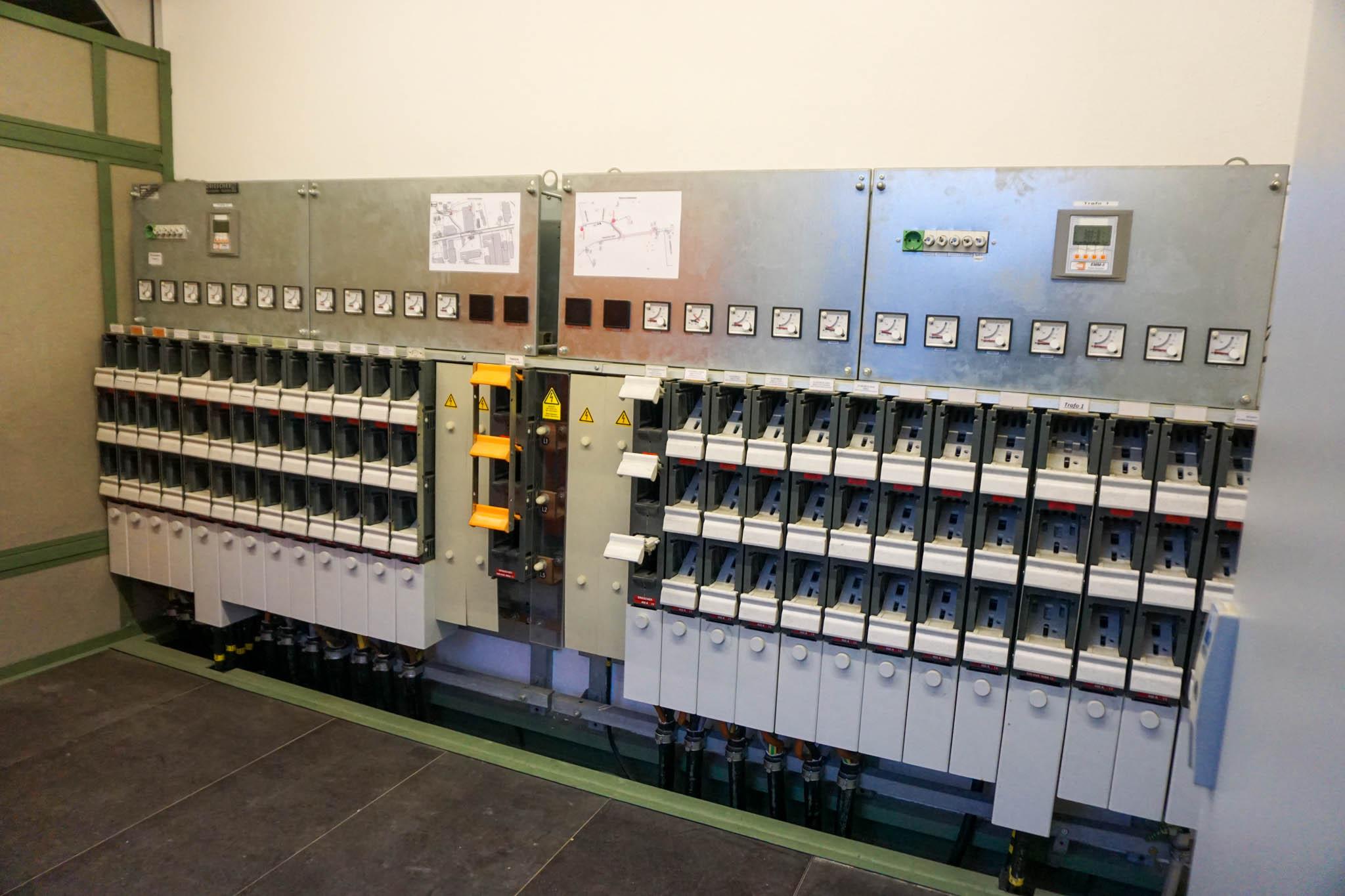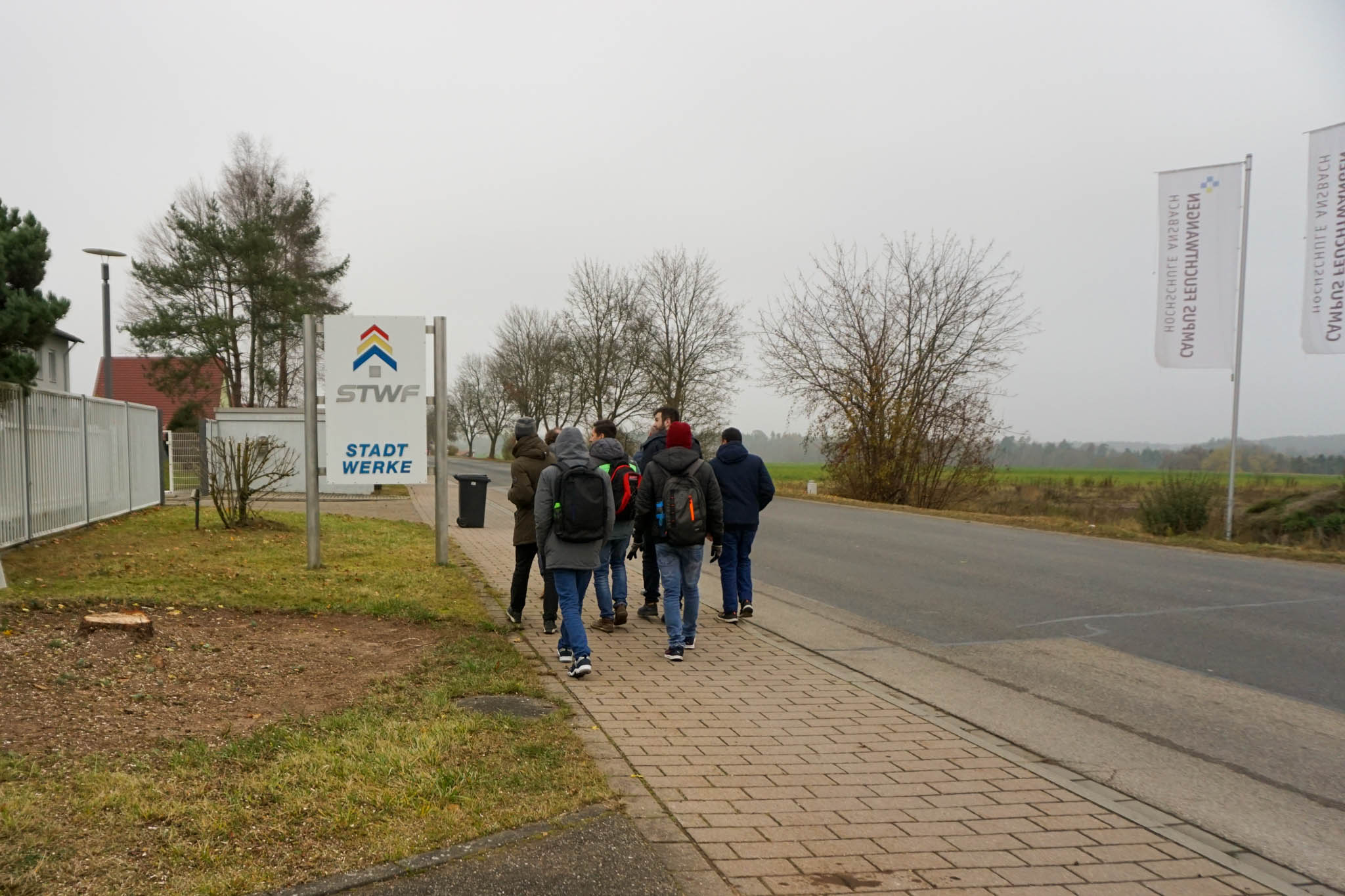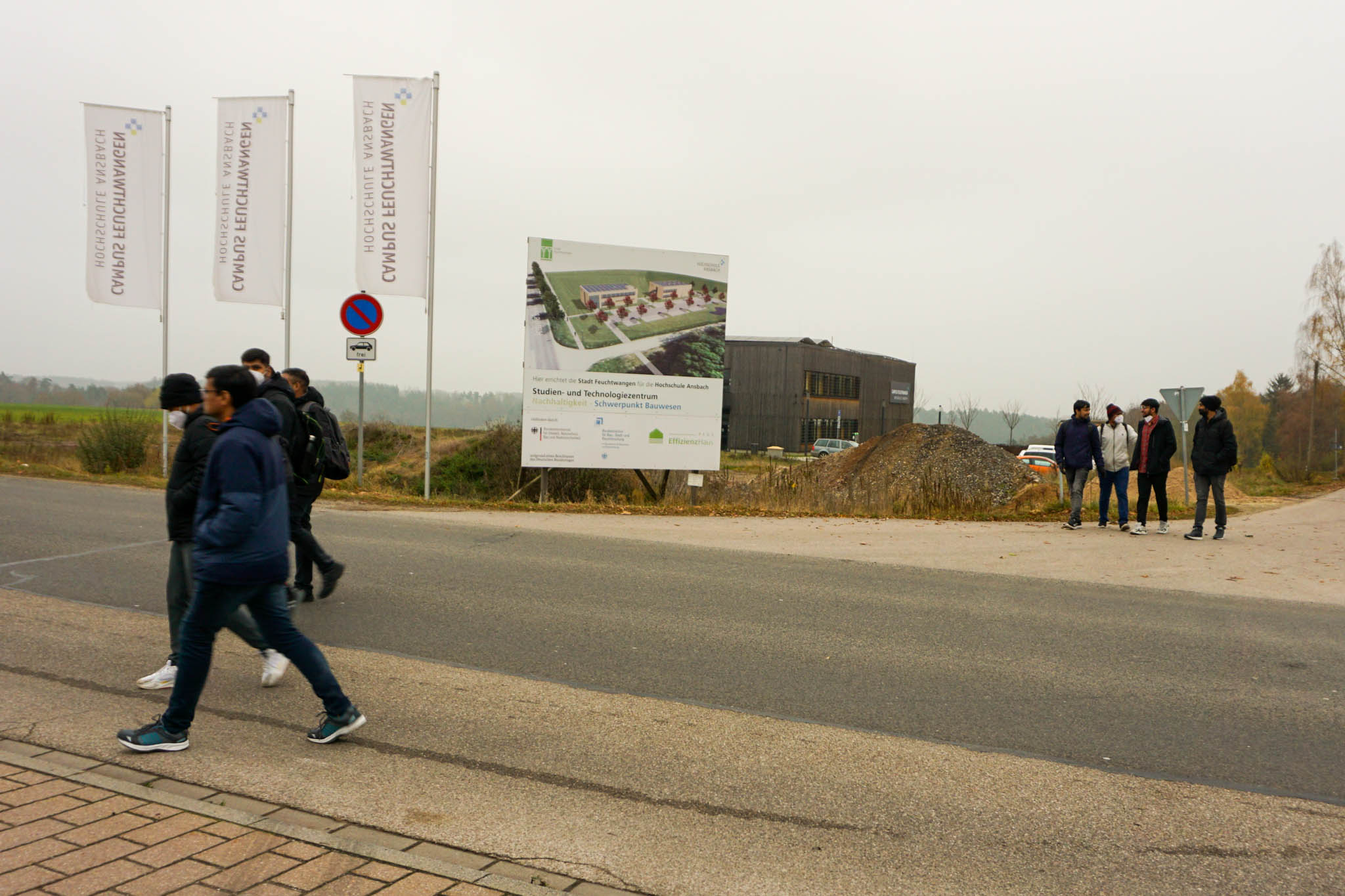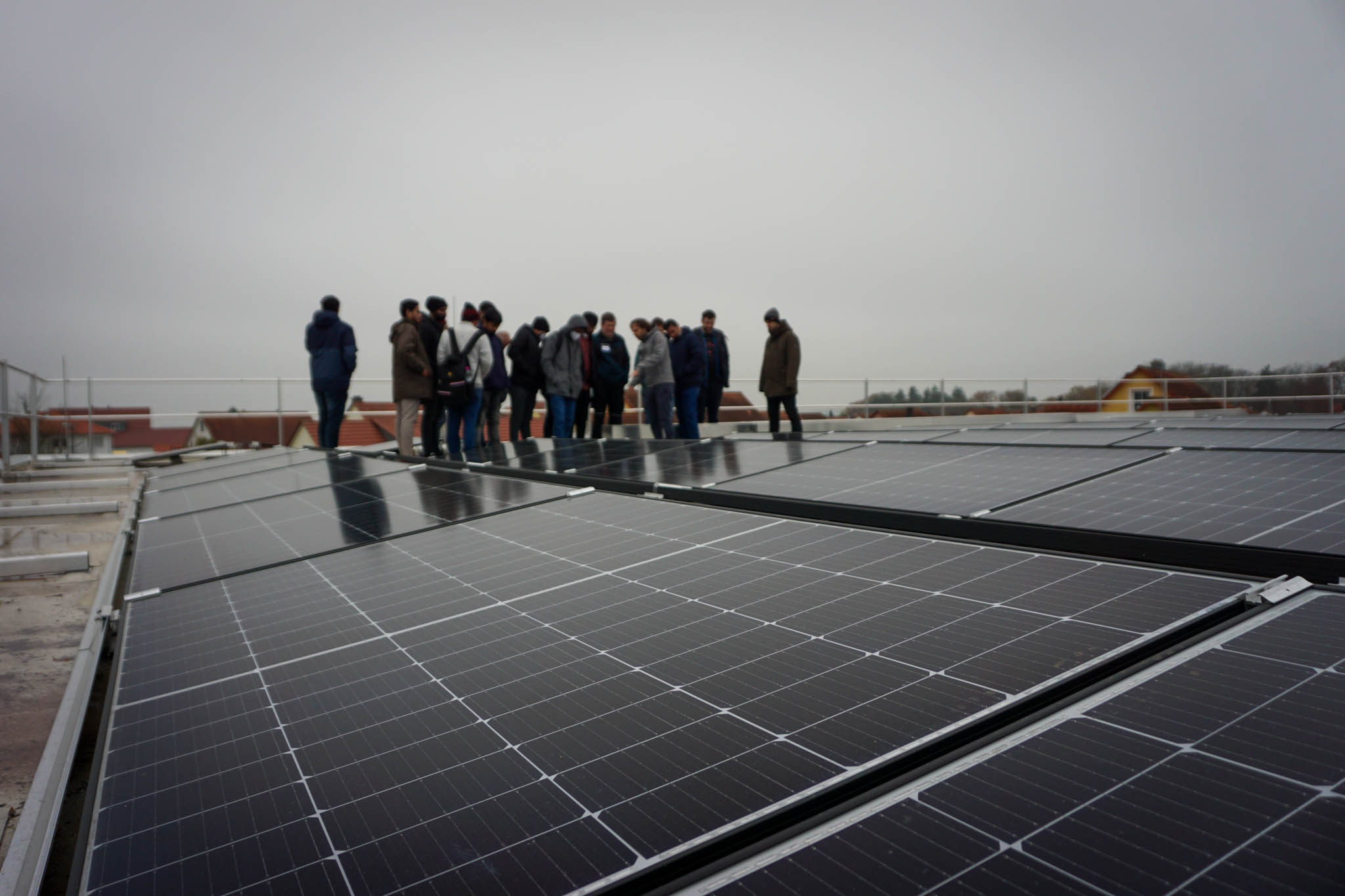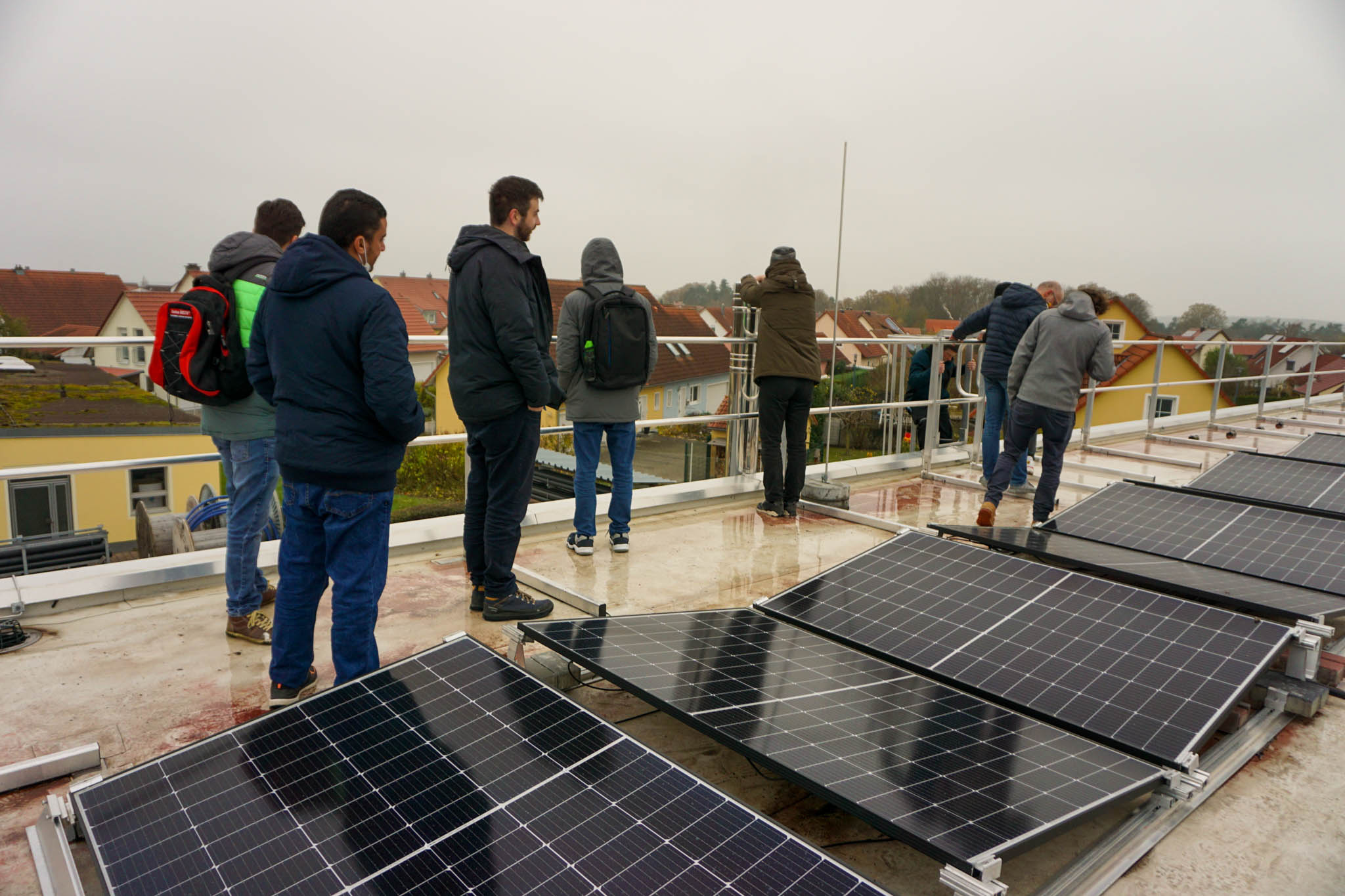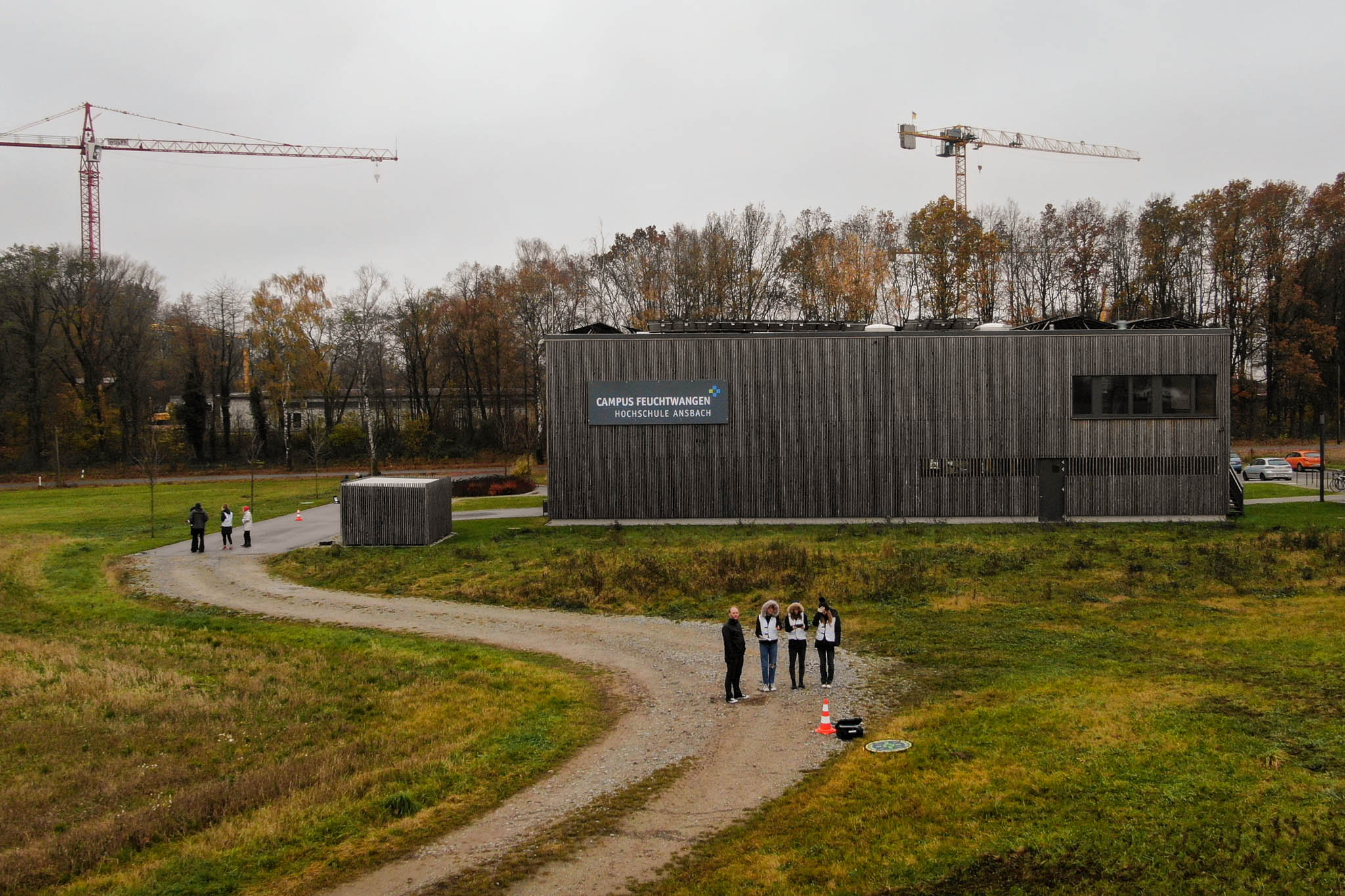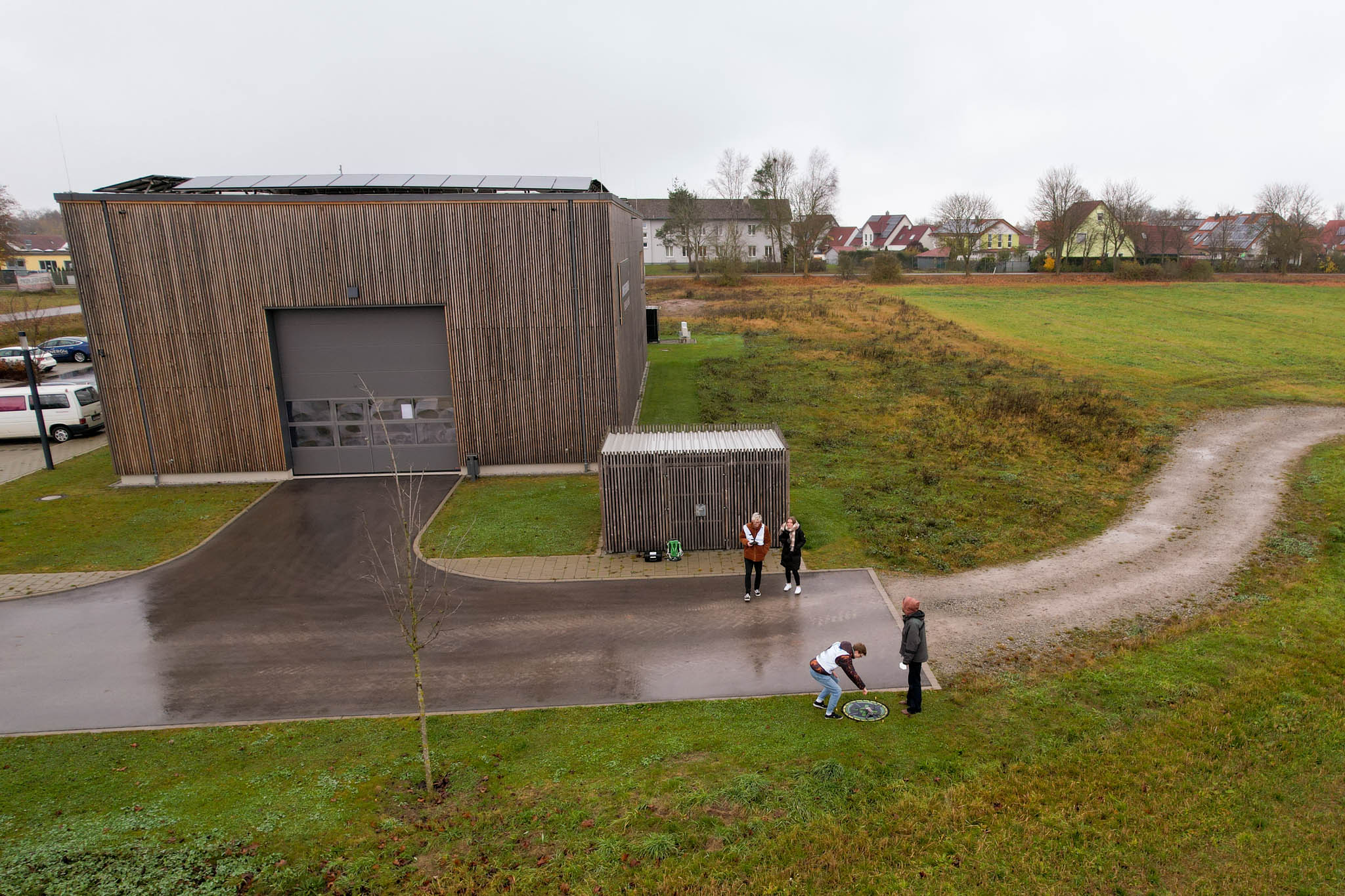Practical days and excursions instead of lectures
Block week at Ansbach University of Applied Sciences provides insights into practice
Five days out of the daily student routine, completely free of lectures, instead talking and informing yourself about current projects, discovering and improving unexpected skills or marveling at a business enterprise from the inside – this is what the block week offers. As an integral part of the studies at Ansbach University of Applied Sciences, the block week takes place twice a year at the beginning of May and November and gives students the opportunity to think outside the box.
Students from the Smart Energy Systems master’s program at Campus Feuchtwangen went on an excursion to various energy generation plants in and around Feuchtwangen last Tuesday.
Thomas Heidecker first introduced his biogas plant to the students. “The plant is fed with about 60% pig manure and 40% plant substrate from corn, grain and grass. The biogas is then used on-site to generate electricity in a generator. The waste heat from the engine, in turn, provides heat to barns and surrounding residences. In addition, numerous photovoltaic (PV) modules on the stables and machine sheds produce additional electricity,” says the energy farmer.
Near Thürnhofen, Werner Schwab received the students at the wind power plant there. In addition to the most important technical data on the plant, such as output, hub height and full load hours, the students also asked about maintenance requirements and intervals as well as the depth of the foundation. The highlight, however, was the entry into the wind turbine tower and the inspection of the control technology.
Afterwards, Alexander Strauß and Stefan Pröger from the Feuchtwangen public utility company led a tour of the neighboring ground-mounted PV plant. Visibly enthusiastic, they inspected the many rotatably mounted modules and also immediately discovered potential for optimization: “Although the rotation always ensures an optimal orientation to the sun during the day, there is no possibility to adjust the inclination of the modules depending on the season and thus the position of the sun.” However, the students did not immediately agree on whether this technical effort to increase the yield was worth it.
Back in Feuchtwangen, Stefan Pröger opened a public charging station to inspect its inner workings. Initially puzzled by the two electricity meters in the column, the solution was found after a brief consideration: “One meter measures exactly the amount of electricity refueled with the electric car, while the second additionally measures the power requirements of all the electronics and other components in the column,” according to the students’ analysis.
Finally, on the roof of the Feuchtwangen municipal utility, the students were able to examine the PV system recently installed there. “Due to the east-west orientation of the PV modules, this system generates a lot of electricity especially in the mornings and evenings, i.e. exactly when the PV share in the electricity mix is currently still low” the future energy experts immediately noted correctly.
In addition, numerous students from the Technology and Media faculties at Campus Feuchtwangen took advantage of the opportunity to deepen their knowledge of drones and fly them themselves. As part of the course “UAV Basics and Deepening”, the practical flying days are firmly anchored. There, the students are instructed in the proper handling of the drones, the preparation and post-processing and the safety regulations to be observed.
“The prerequisite, however, is the remote pilot certificate A1/A3, which can be obtained from the Luftfahrtbundesamt in the form of an online examination. After that, students are then allowed to perform various flight maneuvers themselves. We instructors are on hand to provide advice and tips during this time. After the successful flight practice day, students also have the opportunity to borrow drones for their own projects,” says Dr. Gernot Vogt, Business Manager of the Bavarian Drone Academy.

